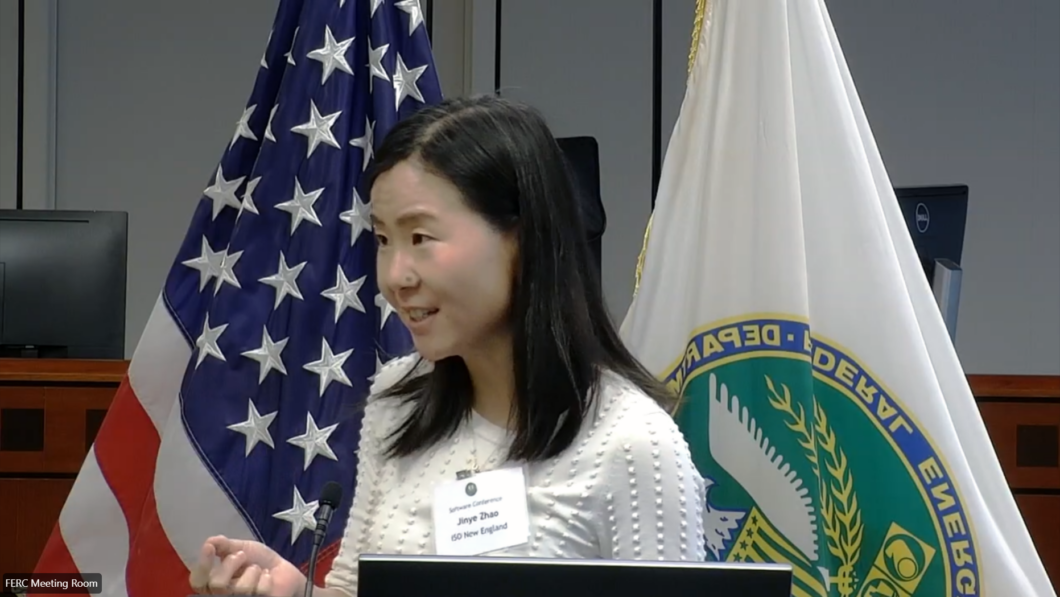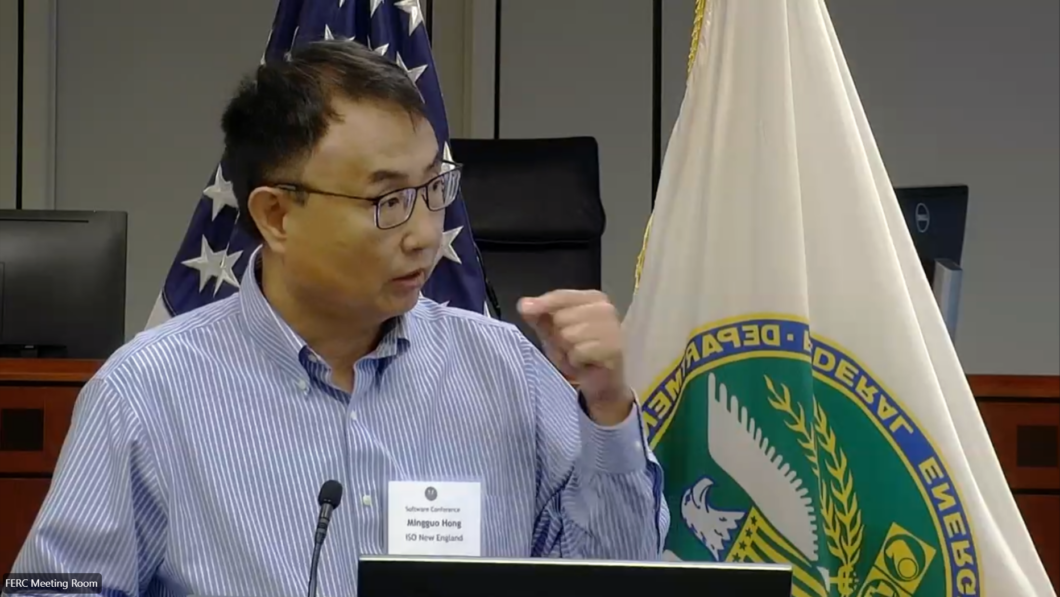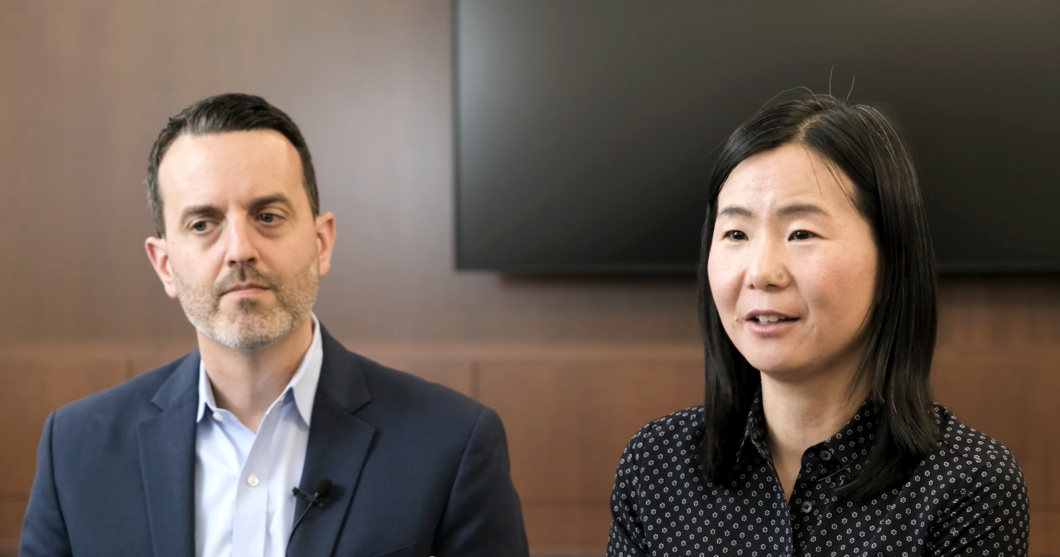ISO-NE experts speak at FERC software conference
Experts from ISO New England presented cutting-edge work at a recent technical conference on software for increasing the efficiency of electricity markets and power system planning.
The annual conference in Washington is hosted by the Federal Energy Regulatory Commission.
Feng Zhao, manager, Market Solutions & Optimization Technology, gave a presentation titled “A MRI-based Resource Capacity Accreditation.” The ISO is developing capacity accreditation methods that aim for better alignment between the amount of capacity a given resource can bid into the capacity market and that resource’s contribution to the reliability of the power system. Key to striking this balance is “substitutability,” the concept that each megawatt of accredited capacity, regardless of the resource type, should have the same impact on system reliability. In other words, accreditation should reflect a resource’s marginal contribution to meet system demand when the power system is at risk of not serving load.

A second presentation, titled “Development of a Regional Energy Shortfall Threshold,” outlined work by Jinye Zhao, Stephen George, Ke Ma, and Hannah Johlas. The Regional Energy Shortfall Threshold (REST) will supplement existing reliability standards to comprehensively cover risks to the power system posed by extreme weather. Under REST, an agreed-upon threshold would inform regional decision-making about managing potential energy shortfalls. It will rely on the Probabilistic Energy Adequacy Tool (PEAT) to assess the likelihood and severity of energy deficits in the region. Stakeholder discussions around REST are ongoing.

A third presentation was titled “Study of DER Responses Using Transmission and Distribution Systems Co-Simulation.” The project involves the ISO’s Mingguo Hong, Xiaochuan Luo, Tongxin Zheng, Pradip Vijayan, and Bradley Marszalkowski, as well as representatives of the Pacific Northwest National Laboratory, National Grid, and Vermont Electric Power Company. Its goal is to better understand the behavior and impact of distributed energy resources (DERs), which are primarily inverter-based resources such as solar photovoltaics that are connected to the distribution system. DERs can trip offline during power system disturbances that traditional resources typically “ride through.” That can lead to further problems on the transmission system.
The three-day conference also featured expert presentations from major RTOs including PJM Interconnection, Southwest Power Pool, Midcontinent Independent System Operator, California ISO, and New York ISO, research institutions and academics.

